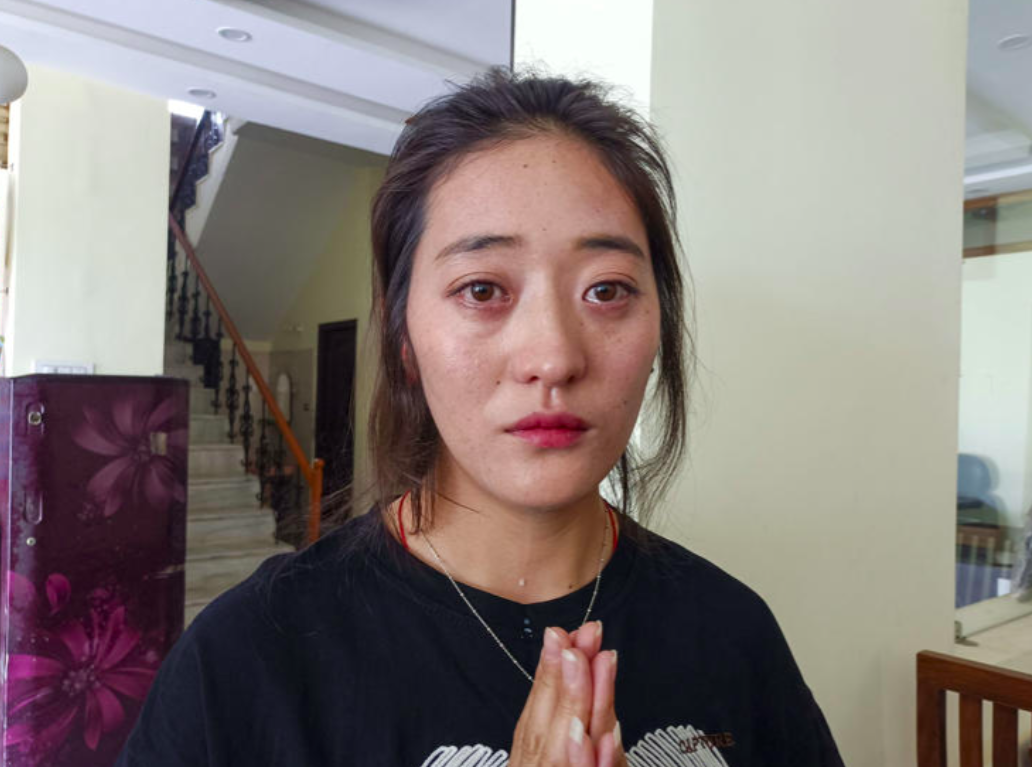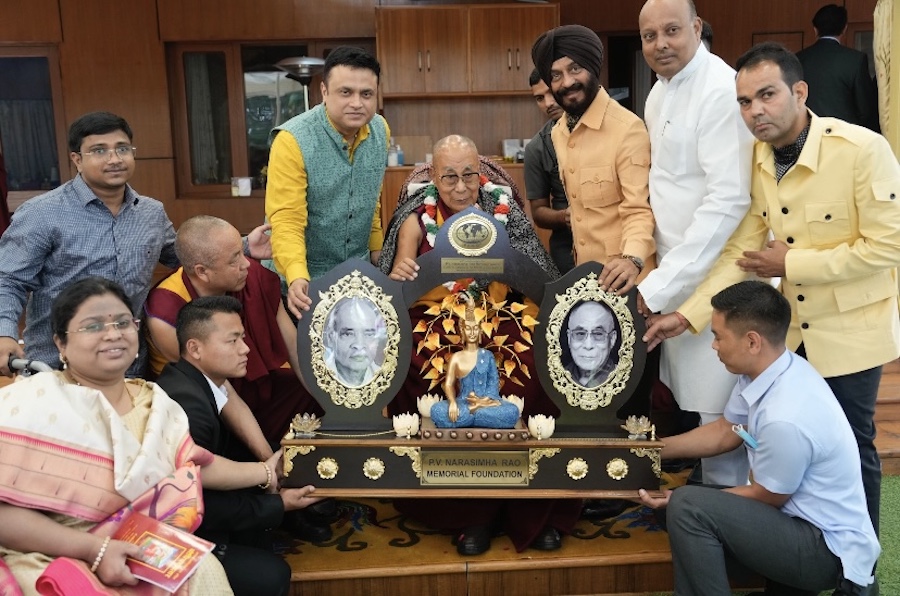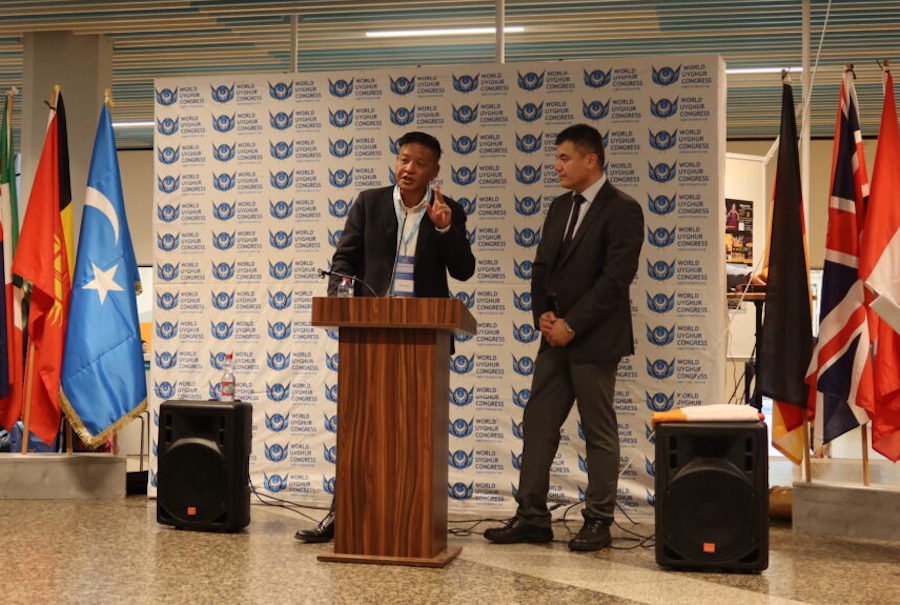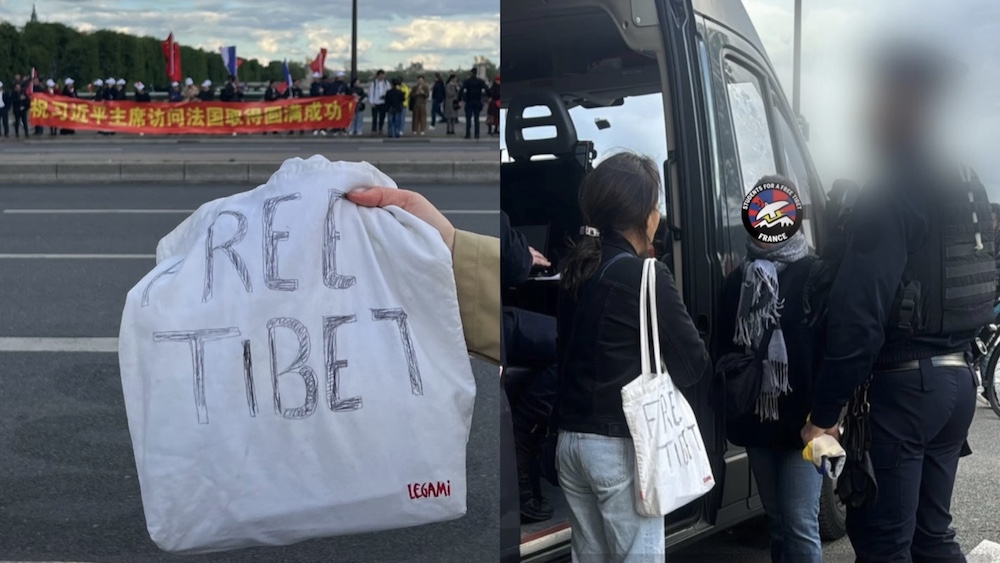 TOKYO, May 7 – Chinese President Hu Jintao on Wednesday demanded the Dalai Lama stop trying to divide China, incite violence and harm the upcoming Olympic Games in Beijing. But he said fledgling talks with the exiled spiritual leader’s representatives would continue.
TOKYO, May 7 – Chinese President Hu Jintao on Wednesday demanded the Dalai Lama stop trying to divide China, incite violence and harm the upcoming Olympic Games in Beijing. But he said fledgling talks with the exiled spiritual leader’s representatives would continue.
Hu, speaking at a news conference with Japanese Prime Minister Yasuo Fukuda, vowed that Beijing would keep up a recently begun dialogue with the Dalai Lama, though he offered veiled accusations the Dalai Lama is causing more problems than he is solving.
“We hope that the Dalai will express his sincerity through his acts,” Hu said sternly. “We hope the Dalai will stop acting to separate the homeland, stop orchestrating the inciting of violent acts and stop undermining the Beijing Olympics, so as to create the conditions for further discussions. We hope that the contacts will have a positive result.”
Representatives of the exiled Tibetan government met with Chinese officials earlier this month for the first time since 2006. The talks were prompted by a resurgence of violence in Tibet, which China has governed since the 1950s.
China says 22 people died in violence in Tibet’s capital of Lhasa in March, while overseas Tibet supporters say many times that number died in protests and a subsequent crackdown.
Fukuda said he highly evaluated Hu’s decisiveness and willingness to talk with the Dalai Lama’s side. But he, too, had a warning.
“The Olympics must succeed,” Fukuda said. “The world is watching. We hope the Chinese government and people realize this and that people will be able to watch the games with pleasure.”
Fukuda said Beijing’s hosting of the Olympics is much like Tokyo’s hosting of the 1964 games, which he said marked Japan’s emergence on the world stage after its defeat in World War II.
Fukuda, however, said he had not decided whether to attend the opening ceremony.
The comments by Hu, the first Chinese president to visit Japan in 10 years, come amid renewed propaganda attacks in China on the Dalai Lama.
In an editorial entitled “The Dalai’s front for his splittist plot,” the Communist Party’s Tibet Daily newspaper accused him of conspiring with enemy forces in a bid to divide China and impede its development.
“In seeking to internationalize the ‘Tibet question,’ the Dalai Lama simply wishes to bring about his evil plot of splitting China, sabotaging Tibet’s stability and subverting socialist China,” the paper said.
Such a plot is “doomed to failure,” the paper said.
The editorial signalled no letup in Beijing’s relentless campaign to vilify Tibet’s highest ranking Buddhist leader, despite the relatively mild tenor of an official statement issued following Sunday’s meeting in southern China between Chinese officials and a pair of envoys from the Dalai Lama’s India-based government-in-exile.
Such inflammatory propaganda appears driven in part by the Communist Party’s realization that a half century of media demonization and ideological indoctrination have failed to erode the top Buddhist cleric’s popularity among many Tibetans.
The propaganda also seeks to arouse hatred among ordinary Chinese by associating the 1989 Nobel Peace Prize winner with a hazily defined array of “overseas anti-China forces” accused by the party of seeking to restrain China’s development.
That effort has been broadly successful, especially among highly nationalistic young Chinese, with recent massive rallies among Chinese abroad held to attack the Dalai Lama and what organizers claim is biased foreign media coverage of Tibet.
The Tibet Daily editorial reiterated claims that the Himalayan region has been under Chinese rule for seven centuries. Many Tibetans say that the area was effectively independent for much of that time.
It also renewed accusations that the Dalai Lama was behind the deadly riot in Lhasa last month, along with the protests that dogged the global Beijing Olympic torch relay.
Such acts “fully revealed his reactionary face of smearing China’s image, inciting anti-China sentiment, creating chaos within China, destroying China’s economic construction and delaying the rise of Chinese,” the editorial said.









